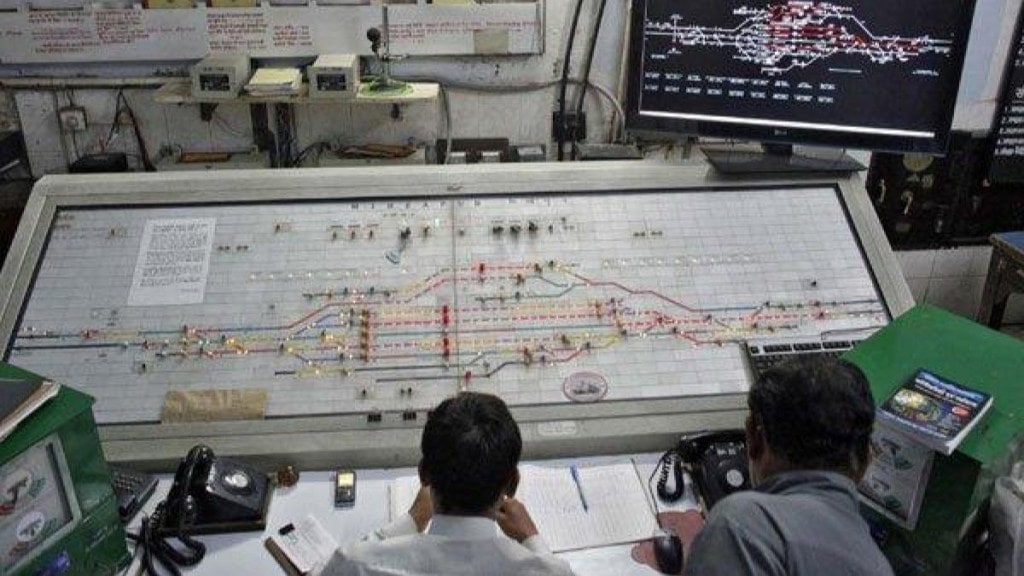Unattractive pay scale, poor career growth, stress related health concerns and lack of basic amenities are some of the many challenges faced by train controllers in India. These challenges came to light in a study by the Research Design and Standards Organisation (RDSO), which functions under the Railway Ministry.
A train controller manages railway operations by monitoring track activities, coordinating train arrivals and departures, overseeing scheduling, and planning logistics to ensure safe and efficient transportation.
Titled “The Challenges Faced by Section Controllers in Carrying Out Their Duties Effectively”, the study explores potential improvements in selection procedures, training, and infrastructure to enhance the efficiency of train operations. According to the report, train controllers, known as section controllers, perform high-strain jobs without adequate compensation or career growth opportunities. The situation is exacerbated by a 15-20% vacancy rate in the cadre, with many medically de-categorized officers posted in these roles.
Vacancies, working conditions and burnout
The Indian Railways, one of the largest rail networks globally, operates over 1,05,555 kilometers of tracks daily, controlled by 68 operation centers called Divisional Control Offices. These offices, located at divisional headquarters, play a crucial role in managing train operations. However, the RDSO report reveals that vacancies in the section controller cadre range from 15 to 24 percent, significantly affecting the working conditions of staff.
“Under strenuous conditions, the quality of work also suffers. Administration also faces difficulty in managing the rest and leave of the staff. Therefore, vacancy in the cadre should be analysed on priority and effort should be made to fill up the vacancy,” the report said.
The study points out that 75% of section controller posts are filled through selection from the feeder cadre of Station Masters, train managers and train clerks. However, changes in the pay scale have led to reluctance among Station Masters to apply for these positions. Previously, section controllers received a higher grade pay than Station Masters, making the role more attractive. The current pay parity between the two has resulted in a shortage of staff, further increasing the workload on existing controllers.
Lifestyle-related disorders and lack of amenities
“During interaction with Section Controllers on their health-related issues, it was revealed that most of the Section Controllers are suffering from various lifestyles related disorders like, Blood Pressure, Diabetes, or Heart disease. This is a matter of concern for an employer,” the report read. It recommended periodic medical examinations and wellness programs, including yoga and meditation, to promote better physical and mental health.
Basic amenities in Section Control Offices are also lacking, with no water purifiers, automatic tea/coffee vending machines, or adequate restrooms available. The study suggests that improving these facilities could significantly enhance the work environment and overall well-being of the staff.
Improvement recommendations
- Upgrading pay scales: Increasing the initial pay scale for section controllers from grade pay 4,200 to 4,600 could make the position more attractive to potential candidates from the feeder categories.
- Direct recruitment and aptitude tests: Reintroducing direct recruitment through the Railway Recruitment Board and introducing aptitude tests in the recruitment process could help attract qualified candidates and ensure they are well-suited for the job.
- Enhanced training and refresher courses: Extending the duration of training periods and increasing the frequency of refresher courses from once every three years to once a year could help section controllers stay updated with the latest knowledge and skills, similar to the practices followed by Air Traffic Controllers.
- Improving working conditions: Addressing the vacancies in the cadre, providing adequate rest and leave, and ensuring the availability of basic amenities could significantly improve the working conditions for section controllers.
- Health and wellness initiatives: Regular medical check-ups and wellness programs focusing on stress management and lifestyle changes could help mitigate the health issues faced by these employees.
(With inputs from PTI)
